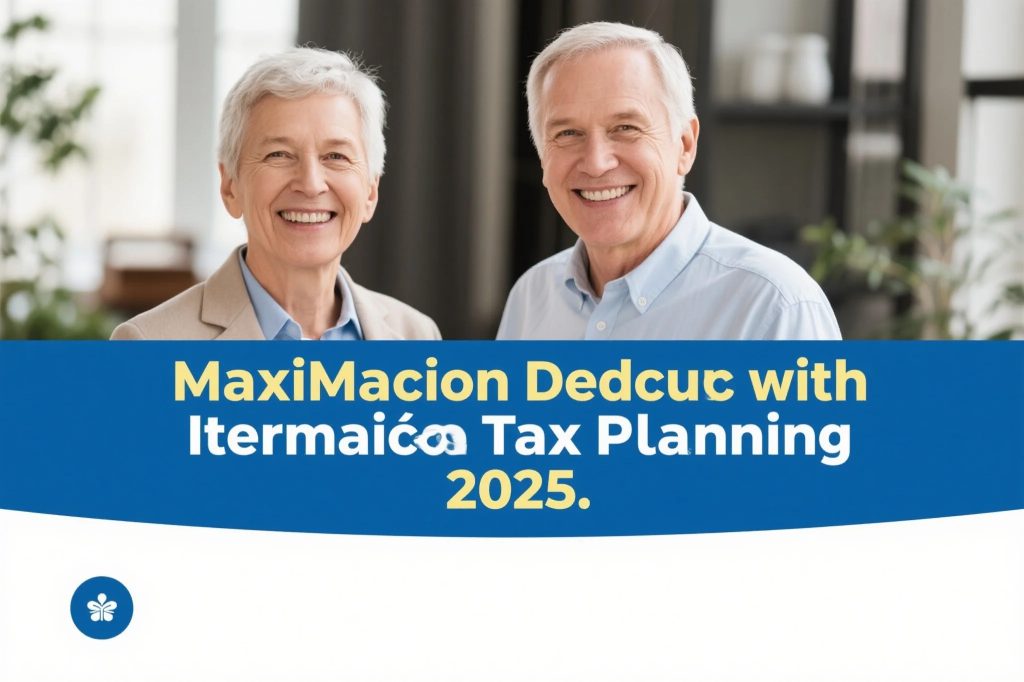
The Strategic Value of Itemized Deductions in 2025
As the IRS prepares to implement sweeping changes to the tax code in 2025, high-net-worth individuals face both challenges and opportunities in tax efficiency planning. The revised itemized deductions framework creates new possibilities for sophisticated income sheltering strategies that can preserve wealth while remaining compliant with 2025 IRS rules. This comprehensive guide examines how affluent taxpayers can navigate the evolving regulatory landscape to maximize their deductions through careful planning and strategic financial structuring. Learn more about itemized deductions threshold changes.
Understanding the 2025 Deduction Landscape
The coming tax year brings substantial modifications to what qualifies as deductible expenses under the 2025 IRS rules. For high-income earners, these changes necessitate a complete reevaluation of traditional HNW tax strategy approaches. The increased standard deduction amounts mean that itemized deductions will only benefit those with substantial qualifying expenses, making proper documentation and strategic bundling of deductions more critical than ever. The new limitations on state and local tax deductions, combined with revised thresholds for medical expense deductions, create complex planning scenarios that require professional guidance. Discover how tax efficiency principles apply to charitable giving.
Advanced Strategies for Medical Expense Deductions
The 2025 modifications to medical expense itemized deductions present unique opportunities for those who understand the nuanced 2025 IRS rules. The adjusted gross income threshold for deducting medical expenses has been lowered to 5.5% for taxpayers under 65, creating potential income sheltering benefits for those with significant healthcare costs. High-net-worth families should consider accelerating elective medical procedures into 2025 to maximize this deduction before potential future restrictions. The inclusion of certain home modifications as qualified medical expenses under the new rules provides additional planning avenues for those looking to improve their tax efficiency while addressing healthcare needs. Read about HNW tax strategy for medical planning.
Optimizing Charitable Contributions Under New Rules
Philanthropy remains a cornerstone of effective HNW tax strategy, but the 2025 changes require updated approaches to maximize tax efficiency. The revised limitations on cash contributions to public charities (now capped at 50% of AGI rather than 60%) necessitate more sophisticated planning around the timing and structure of gifts. Donor-advised funds gain increased importance as flexible vehicles for income sheltering, allowing taxpayers to bunch multiple years’ worth of charitable deductions into a single tax year when they can fully utilize itemized deductions. The new rules also expand the types of appreciated assets that can be donated while avoiding capital gains taxes, creating additional planning opportunities. Explore 2025 IRS rules for charitable giving.
State and Local Tax Deduction Strategies
The 2025 IRS rules maintain the $10,000 cap on state and local tax (SALT) deductions but introduce new exceptions that create potential tax efficiency opportunities. Pass-through entity tax elections have been expanded and simplified, offering business owners a viable method for circumventing the SALT deduction cap. High-income individuals in high-tax states should carefully evaluate whether restructuring their business interests could provide meaningful income sheltering benefits. The interaction between these entity-level tax payments and the revised itemized deductions framework requires careful modeling to determine optimal strategies that vary significantly by jurisdiction and individual circumstances. Learn about tax efficiency in different states.

Investment Interest Expense Deductions
The treatment of investment interest expenses under the 2025 IRS rules creates new possibilities for HNW tax strategy optimization. The revised limitations allow taxpayers to deduct investment interest expenses up to the amount of net investment income, with expanded definitions of what qualifies as investment income. This change enhances opportunities for tax efficiency when using leverage in investment portfolios, particularly for those with substantial dividend and interest income. Careful tracking of investment expenses and proper allocation between personal and investment use of assets becomes crucial for maximizing these itemized deductions while complying with the more stringent documentation requirements. Discover income sheltering through investment strategies.
Casualty and Theft Loss Deductions
The 2025 modifications to casualty loss itemized deductions restore some availability that had been limited in previous years, creating potential tax efficiency opportunities for affected taxpayers. The new rules lower the threshold for deducting losses from 10% of AGI to 7.5% and expand the types of qualifying events. High-net-worth individuals with significant property holdings should review their insurance coverage and consider the income sheltering potential of properly documenting and claiming eligible losses. The interaction between these deductions and the revised 2025 IRS rules regarding disaster area declarations adds another layer of complexity that requires professional guidance to navigate effectively. Read about HNW tax strategy for property owners.
Implementation Roadmap for 2025
Successfully navigating the new landscape of itemized deductions requires a proactive approach to tax efficiency planning. High-net-worth individuals should begin by conducting a comprehensive review of all potential deductions well before year-end to allow time for strategic adjustments. The first quarter of 2025 will be particularly critical for implementing any necessary changes to charitable giving programs, investment strategies, and business structures to optimize income sheltering under the revised rules. Ongoing consultation with tax professionals who specialize in HNW tax strategy will be essential to ensure compliance while maximizing available benefits under the complex 2025 IRS rules. Get started with our itemized deductions planning checklist.